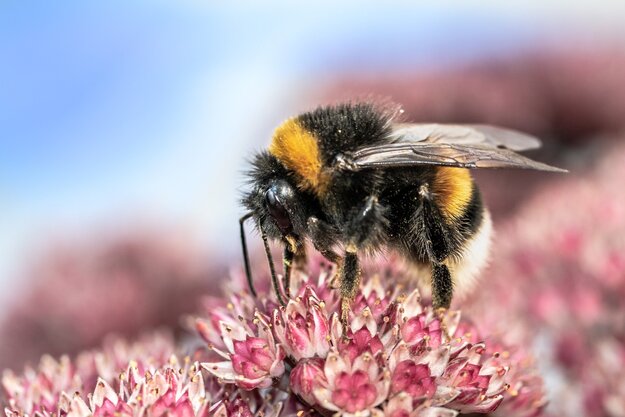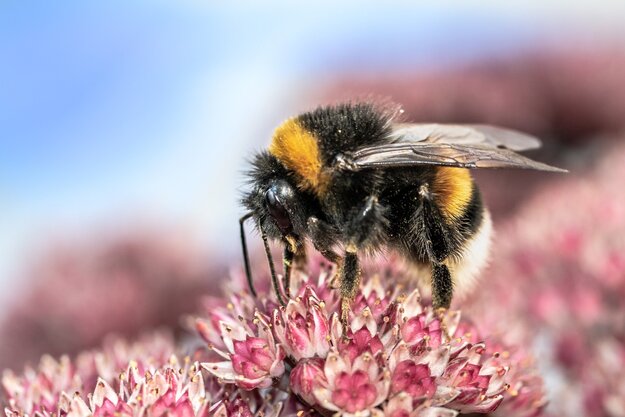Buglife charity is asking residents to change the way they garden to increase biodiversity
A CARDIFF based charity is asking residents to make a pledge to improve the number of insect populations.
Buglife launched its Give Nature a Home pledge in September 2021 with the goal of getting 200 people to do what they can to improve insect populations in their area or gardens.
The pledge focuses on pollinating species of insects which transfer pollen from one flower to another. This process fertilises flowers and is essential in crop production.
Buglife conservation officer, Tom Bucher-Flynn, 30, of Roath said: “About 70% of our insect species are in decline in the UK.
“In terms of that impact on us we aren’t far behind places like the Midwest in the US and China who already have to pay for pollinators to be shipped around the country. They pay lots of money for that.
“We still have this natural ecosystem service; the UK’s crops require the equivalent of £690,000,000 worth of pollination. We really have to maintain pollinator populations.”

Mr Bucher-Flynn explained that every third bite of food is a result of pollination. Fruit including peppers and tomatoes would be significantly impacted, as would potatoes. Any crop with a flower needs a pollinator to produce the next generation of plants.
Urban areas are the home to many pollinator species of bees, flies, wasps, butterflies and moths but human activity is causing these populations to decline.
Use of pesticides, use of land in both farming and gardens has caused a dramatic impact on pollinator populations.
Climate change has also impacted populations as new insect species are moving to the south west of Wales due to the warm weather and are competing for limited resource with existing populations.
“Due to the sea, there is a coastal squeeze. Lots of species will have no where to go.
“We have to think about whether there is enough resources for pollinators,” said Mr Bucher-Flynn.
This is one of the issues that the Buglife pledge deals with. It suggests that flower beds and lawns are permitted to grow out over May so that pollinator nests are not disturbed, and more resources are made available.
Buglife also encourages people to buy native plants from local seed and create large wildflower areas if there is space to do so.
For people without gardens, Mr Bucher-Flynn suggested hanging baskets, or pots on windowsills.
“This is especially important because lots of wildflowers are out during the summer but there aren’t many springtime ones.
“People can have a really big impact by planting snowdrops or ivy which work well in baskets and pots and provide pollen to pollinators in the spring when they need it most,” Mr Bucher-Flyn said.
The UK Pollinator Monitoring Scheme found that even small areas of wildflowers dramatically increase pollinator biodiversity.
Mr Bucher-Flynn added that little ponds, which could be as small as a saucepan, are also very effective for hoverfly populations.
Another theme of the pledge is to stop using pesticides in gardening. While these kill pests, they also harm pollinator populations.
“People don’t understand how important wasps are to the ecosystem, they are natural pest controllers,” Mr Bucher-Flynn added.
“We have around 4,000 different species of wasp and for every type of pest on every species of plant there is a wasp species that eats the pest.”
Buglife is funded by the National Lottery and is working together with Cardiff Council and RSPB.
The charity will be offering seasonal ideas to aide pollinators and later in the year they plan to offer workshops.
To make your pledge click here.



